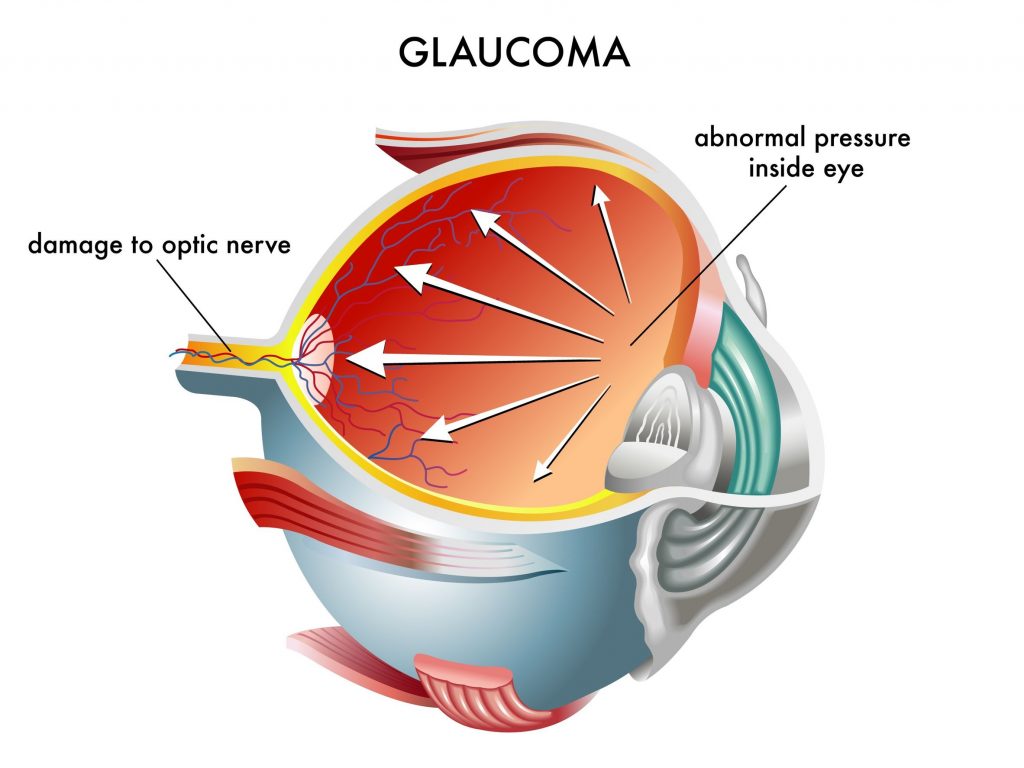Treating and Managing Your Glaucoma
Although there is not yet a cure for glaucoma, there are treatments that can save your vision. Early detection and treatment can prevent damage to the optic nerve. Treatments focus on reducing intraocular pressure (IOP), even in normal-tension glaucoma. Vision loss caused by glaucoma cannot be reversed, but further vision loss can be prevented with treatment. Because glaucoma does not produce early warning signs, regular eye exams are your best defense against vision loss, especially if you are at risk for developing glaucoma.
Glaucoma Treatment Options
There are several treatment options for glaucoma. Your ophthalmologist may recommend one or a combination of the following:
- Eye drops
- Oral medication
- Laser surgery
- Traditional surgery
Side Effects and Compliance
Eye drops and oral medications are non-invasive, but they do not work for everyone because of side effects and problems with compliance. If you use eye drops or oral medications, you absolutely must use them as prescribed. If you cannot do that, talk to your ophthalmologist right away about alternatives.
There are several types of glaucoma eyedrops, all of which can have unwanted side effects, interactions with other medications, and are contraindicated if you have certain medical conditions. Likewise, with oral glaucoma medications. It is crucial that you tell your ophthalmologist about any medications you already take and any health conditions you have. And, you need to tell your primary care physician and any other doctors about your glaucoma medication.
Glaucoma eye drop side effects can include:
- Stinging eyes
- Itching eyes
- Red eyes
- Red skin around the eyes
- Changes in appearance of your eyelids or skin around the eyes
- Darkening of the iris
- Blurred vision
- Dry mouth
- Breathing changes
- Changes in heartbeat
- Changes in energy level
Glaucoma eye drops may also cause your eyelashes to become darker, longer, and thicker. This is generally a welcomed side effect and led to the development of an eyelash growth serum used for cosmetic purposes.
Laser Surgery
There are several types of laser surgery that can be used to reduce IOP. These include:
- Argon laser trabeculoplasty
- Selective laser trabeculoplasty
- Laser peripheral iridotomy
- Transscleral cyclophotocoagulation
- Endoscopic cyclophotocoagulation
Traditional Surgery
When drops, medications, and laser surgery are not successful in reducing IOP, traditional surgery is necessary. Some patients maintain a safe IOP without medications, after traditional surgery, but for others medications are still required. Results of glaucoma surgery are not always permanent. Traditional surgeries for glaucoma include:
- Trabeculectomy
- Insertion of drainage tubes
- Electrocautery
If you have been diagnosed with glaucoma or are at risk for glaucoma, please search for an ophthalmologists near you.

